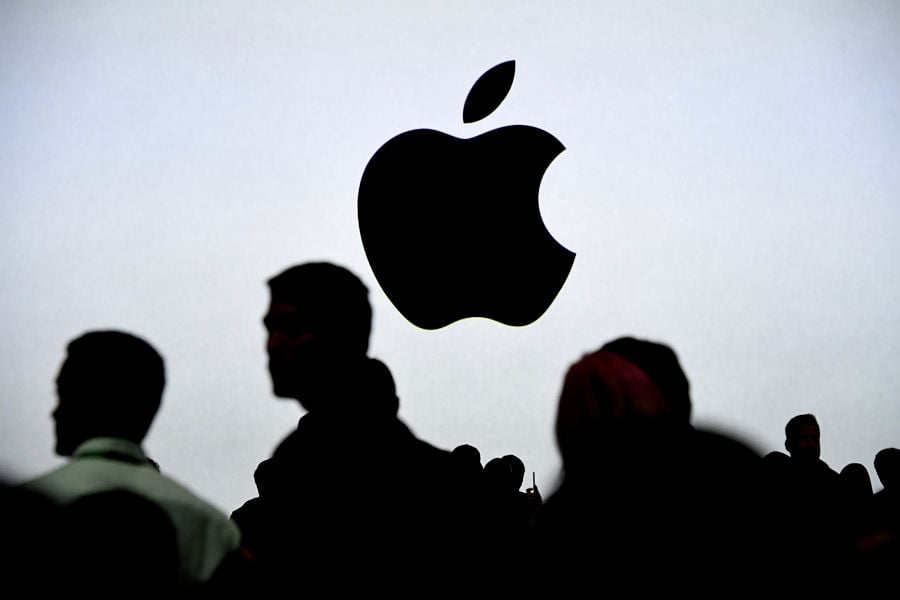

Apple shares fell sharply Thursday, contributing to a broader rout in technology stocks, after President Donald Trump unveiled sweeping tariffs on imported goods. The move triggered investor concerns over heightened trade tensions and the long-term cost to multinational firms with global supply chains.
Apple’s stock dropped more than 9 percent, marking its steepest single-day decline since 2020.
The company also saw its market capitalization – which at one point rivaled France's entire stock market – shrink by more than $250 billion, as traders reacted to the prospect of significantly higher costs on goods assembled outside the US.
The Nasdaq Composite fell more than 5 percent on the day, heading for its worst performance in over five years. Major technology companies including Amazon, Meta, Nvidia, and Tesla also logged steep single-day losses.
As noted by Barron's, much of the market’s anxiety centered on Apple’s reliance on China and other Asian countries for manufacturing. Roughly nine-tenths of the company’s products are assembled in China, where its primary supplier, Foxconn – also known as Hon Hai Precision Industry – maintains the bulk of its operations.
Vietnam and India, both growing parts of Apple’s supply network, are also subject to the new tariff regime, with levies of 46 percent and 27 percent respectively.
The Trump administration announced plans to impose a blanket 10 percent tariff on all imported goods and added higher rates on selected countries. Trump framed the tariffs as a necessary and positive strategic shift.
"It’s our declaration of economic independence,” Trump said Wednesday. “Jobs and factories will come roaring back into our country, and you see it happening already.”
In his Wednesday "Liberation Day" speech, the president praised Apple’s $500 billion domestic investment pledge, which some analysts say could lead to some relief for the iPhone maker.
“We do not yet know if Apple will be exempted (it was exempted in 2018), but Apple’s announcement on Feb 25 it would invest $500 billion in the US over the next 4 years may help it get [an] exemption,” Jefferies analyst Edison Lee wrote in a note to clients.
The reciprocal tariff on China, to be levied on top of the 20 percent Trump had announced earlier, would raise its total tariff rate to 54 percent. Lee projected that if Apple were to absorb the cost of a 54 percent tariff on China-assembled iPhones sold in the US, its net profit for fiscal 2025 could be cut by as much as 14 percent.
Beyond production, analysts are also flagging risks to Apple’s international sales. The company generates approximately 64 percent of its revenue from markets outside the US, exposing it to potential retaliation from other countries, including consumer boycotts or counter-tariffs.
Wedbush Securities analysts said the tariffs are “worse than a worst case scenario” for tech investors. Apple, they noted, faces “a no-win situation,” as CEO Tim Cook must decide between raising retail prices or having the company take the hit to its bottom line.

Research reveals a 4% year-on-year increase in expenses that one in five Americans, including one-quarter of Gen Xers, say they have not planned for.

Raymond James also lured another ex-Edward Jones advisor in South Carolina, while LPL welcomed a mother-and-son team from Edward Jones and Thrivent.

MyVest and Vestmark have also unveiled strategic partnerships aimed at helping advisors and RIAs bring personalization to more clients.

Wealth management unit sees inflows of $23 billion.

Deal will give US investment bank a foothold in lucrative European market.
Orion's Tom Wilson on delivering coordinated, high-touch service in a world where returns alone no longer set you apart.
Barely a decade old, registered index-linked annuities have quickly surged in popularity, thanks to their unique blend of protection and growth potential—an appealing option for investors looking to chart a steadier course through today's choppy market waters, says Myles Lambert, Brighthouse Financial.
